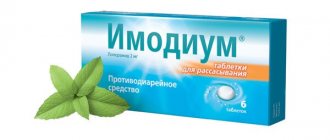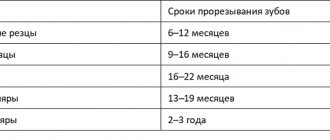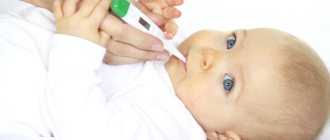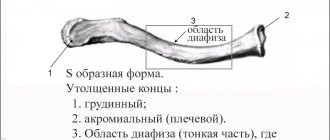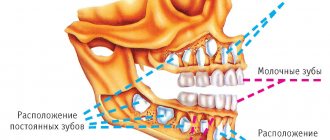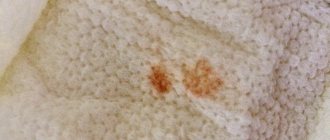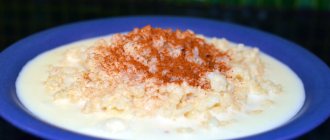Long-term diarrhea
Liquid stool that begins during teething goes away on its own when a white stripe appears on the gum - a tooth.
The baby’s condition is completely normalized, and the unpleasant symptoms disappear. It is impossible to determine how long diarrhea will last; it all depends on the individual characteristics of the body.
The only thing that can be said for sure is that diarrhea that lasts more than 72 hours requires drug treatment.
Can children have diarrhea when teething? How to get rid of it?
The appearance of teeth in children can occur with diarrhea and a number of other symptoms. It is necessary to distinguish this cause of diarrhea from other possible factors. Diarrhea in this case continues for a certain time, exceeding which is considered a deviation from the norm. During this period, it is possible to take certain medications; a certain drinking regimen and nutrition are required.
Relationship between diarrhea and teething
Teething diarrhea occurs for certain reasons. The following factors are important:
- During teething, the baby's drooling increases. Saliva is necessary to protect the oral mucosa from pathogenic microorganisms. It enters the stomach, as a result of which peristalsis accelerates and the stool becomes liquid.
- When teething, the immune system is weakened and therefore more susceptible to many diseases. When an intestinal infection or ARVI occurs, diarrhea often begins.
- Diarrhea during teething is possible due to a genetic factor. If parents suffered from this condition with such a complication in childhood, then a similar situation is possible in their child.
- Inadequate nutrition during teething can lead to disruption of the pancreas. This can lead to intoxication followed by diarrhea.
- When teething, the gums itch, which is why the child pulls various objects into his mouth. Along with them, pathogenic bacteria can enter the body, which provokes diarrhea.
How can you tell if diarrhea is caused by teething?
In the case of diarrhea in a child, it is important to determine that it relates specifically to teething. This relationship can be identified by accompanying symptoms:
- swollen and swollen gums;
- restless state;
- drooling;
- increase in temperature;
- the need for hard objects to chew on;
- vomiting.
A bottle-fed baby may have constipation instead of diarrhea.
During the appearance of baby teeth, the stool is usually watery and the stool is yellow-brown in color. A distinctive feature is the absence of impurities and excessively unpleasant odor.
If there is bloating in the abdomen, peristalsis changes, and pain occurs on palpation, then the matter is not only in the appearance of the first teeth. An alarming factor is also the admixture of blood or mucus, the acquisition of a greenish tint in the stool.
Treatment of diarrhea during teething
Children's health requires increased attention. For any deviations from the norm, it is better to seek advice from a pediatrician. He will assess the child’s condition and prescribe medications if necessary.
If diarrhea is mild, does not last long and is associated only with teething, then the use of medications is not required. They should be used when the situation gets worse.
If a bacterial infection occurs, then antibiotics are needed. A suitable drug is prescribed after determining the causative agent of the pathology. If you have diarrhea, you need to slow down your intestinal motility. For this you can use Imodium or Loperamide. It is also important to maintain intestinal microflora during diarrhea. To normalize it, they usually use Linex, Hilak Forte, Bifidumbacterin.
Temperature during teething can rise to 38 degrees. In this case, there is no need to knock it down. If the temperature rises higher, you can give the child an antipyretic, for example, Nurofen.
Teething is accompanied by unpleasant sensations, so the child becomes capricious. You can alleviate his condition with the help of special gels. These are Kalgel, Cholisal, Kamistad, Dentol baby, Pansoral.
If diarrhea lasts for quite a long time, you need to restore the water-salt balance. To do this, they resort to Regidron. If there is no vomiting and there are no signs of dehydration, then the baby needs up to 0.8 liters of solution. The specific volume depends on the child’s weight. If it is no more than 6 kg, then up to 0.4 liters of liquid is sufficient. It should be given in portions, with an interval of 10-15 minutes.
If you cannot cope with indigestion, then you need to increase the amount of solution consumed. To do this, add 50 ml per kilogram of weight to the recommended volume.
If dehydration is severe, then 100 ml of solution should be added per 1 kg.
Regidron therapy is extended over several hours. Then, when the condition is alleviated, the drinking regimen is based on water, a decoction of dried fruits, weak tea, pomegranate juice, and herbal decoction. You can breastfeed your baby or give him formula.
If the child is over a year old, you can give him rice water. To make it, boil 1.5 tbsp. l. cereals in half a liter of water for 40 minutes. The strained composition is given to the child 50 ml 3 times a day.
Drinking regime and nutrition
If diarrhea is mild and lasts no more than 3 days, then it is enough to increase the drinking regime. The baby should be put to the breast more often, and additional fluids should be provided - water, tea, or a decoction of dried fruits.
Such drinks are acceptable if the child has already tried them before and did not show a negative reaction. Juices are prohibited during this period.
If the baby is more than a year old, then the diet can be diversified with baked apples and crackers. You can reduce the intensity of diarrhea with the help of apples or bananas, if they have already been introduced into complementary foods.
Starch works well against diarrhea if the child tolerates it. There is a lot of starch in mashed potatoes and boiled rice.
There are foods that should not be consumed during diarrhea. This applies to meat and other fatty foods, dairy products (breast milk does not count), fresh fruits and berries (except bananas).
If a new product has recently been introduced, then it should be temporarily abandoned. Sufficient heat treatment of food and grinding is important.
Lifestyle
During treatment, it is also important to adhere to the following recommendations:
- Wash toys, teethers, pacifiers, and pacifiers regularly. All that is possible is to boil.
- Do wet cleaning, keep the crib and play area clean.
- Avoid contact of the child with people suffering from contagious pathologies. Avoid crowded places, especially during epidemics.
- Massage your gums. This technique makes the child’s condition easier. Before the massage, you should wash your hands thoroughly; it is safer to use a fingertip.
How long does teething diarrhea last?
Diarrhea due to teething usually lasts no more than 3 days. During this time, the tooth comes to the surface of the gum and the symptoms begin to disappear.
If diarrhea occurs due to teething, the child usually defecates up to 4 times a day. In the case of an associated infection, diarrhea lasts longer and can last up to a week.
When teeth appear, the child may experience diarrhea, accompanied by other symptoms. It is important to identify that the occurrence of diarrhea is associated precisely with this factor. No special treatment is required for teething diarrhea, but drug therapy is necessary if complications occur.
Source: https://odiaree.ru/u-detej/ponos-u-detej-pri-prorezyvanii-zubov.html
How long will it take to recover?
Every parent is concerned about the question of whether it is necessary to treat a bowel disorder associated with teeth. There is no need to grab your child and rush to the doctor. The main thing is to ensure that the body does not lose more fluid from diarrhea than it receives. At elevated temperatures, additional fluid is required.
It will take some time for each tooth to appear, accompanied by tears, insomnia, and visits to the local doctor. Its duration varies from person to person. Not a single doctor will give a time frame. Some parents will be lucky enough not to notice anything, while others will be changing diapers and looking for a way to lower the temperature.
Drug therapy: is there a need?
Now, how to treat teething diarrhea in babies. This is where you should be extremely careful. Diarrhea during teething in a baby, in the absence of symptoms of other diseases, does not require drug treatment. Drinking plenty of fluids, eating the right foods, or frequent breastfeeding and maternal care is all the baby needs to recover.
We recommend: Can the development of green diarrhea in infants be considered normal?
If your temperature rises, consult your pediatrician. Having confirmed that all this is due to teething, and there are no other reasons for concern, you can bring down high values with the help of Panadol or Ibuprofen in accordance with the age dosage. If you need to take multiple doses, do not forget about the intervals between them. If the temperature continues to persist despite medications, call an ambulance.
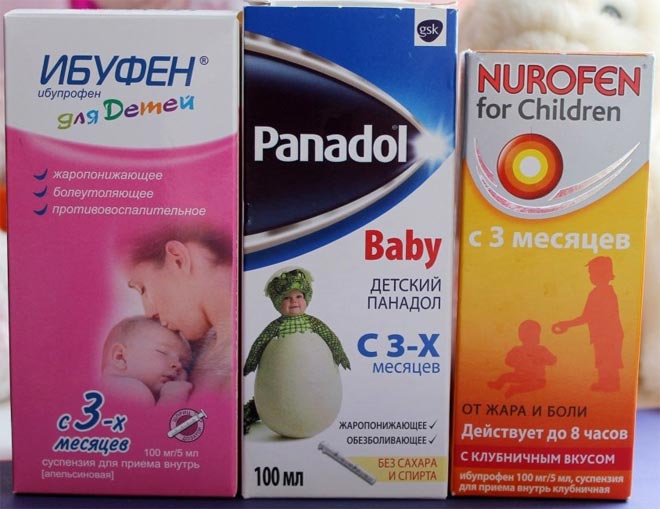
Another unpleasant complication that can cause diarrhea and irritation of delicate skin that lasts for several days. Rash and redness can cause your baby as much anxiety day and night as the teething themselves. To eliminate itching, pain and burning sensation, it is recommended to use Panthenol or Bepanten. The duration of their use is not limited; be guided by the condition of the skin.
This is where home treatment for loose stools not complicated by infection ends. All other drugs can be prescribed only after consultation with a doctor if there are real indications.
How to help the baby?
A baby who has started teething requires a little more attention than usual. But what should parents do with children who are capricious, cry and behave restlessly?
It is necessary to follow some rules to relieve pain, reduce the temperature and calm the baby:
- Light massage of the gums at the site of inflammation. Before the procedure, you must thoroughly wash your hands with antibacterial soap, rinse it off with plenty of running water and wrap your finger in gauze. You need to massage very gently, without pressing on the eruption site.
- Saliva, constantly flowing when teeth are being cut, irritates the area around the mouth, thereby causing a rash and discomfort. To avoid these troubles, it is necessary to promptly wipe the child’s mouth with a napkin and periodically wash his face with boiled water.
- Give your child a teether purchased at a pharmacy. There are many options, including ones with water inside. The cool liquid will help soothe and relieve inflammation from the gums. Before giving the baby a toy, it must be thoroughly washed and pre-cooled in the refrigerator. After the toy warms up from the baby’s warmth, you need to take the teether, wash it well, and put it back in the refrigerator.
- You can use special painkillers and soothing gels for gums (Kalgel, Dentinox-N).
- At high temperatures, antipyretics should be used: Children's Paracetamol, Nurofen, Cefekon and many others.
- To treat diarrhea, you can use drugs such as Smecta, Regidron. To maintain the balance of microorganisms in the intestines, Linex will help.
- For sleep disturbances and moodiness, you can use warm baths with chamomile and calendula. You can also buy special baby sea salt at the pharmacy. These products help the child relax and calm down, thereby giving the baby and his mother a restful sleep.
Remember, do not self-medicate diarrhea in an infant! If you notice any symptoms at this difficult moment for your baby, consult a specialist for advice. Let it be better to be on the safe side than to miss out on a serious illness.
We suggest you read How to choose toothpaste for a child: from 1 year, from 3 years and for other ages
Common mistakes
Inexperienced mothers, having discovered that their baby has diarrhea on their teeth, begin to panic and buy everything at the pharmacy. Their good intentions are understandable, but unknowingly you risk harming the health of the newborn.
- Antibiotics. The main indication for taking antibacterial drugs is infections of bacterial origin. In this case, the type of bacteria must be sensitive to one or another class of antibiotics. How will they help a child who is stressed because his teeth are teething? That’s right, nothing, but will only worsen the course of diarrhea.
- Lacto and bifidobacteria. These drugs are drugs with unproven effectiveness. Moreover, the main indication for their use is intestinal dysbiosis. And microflora disturbance and the process of teething have no relationship. So in most cases their purpose is unjustified.
- Painkillers applied to the gums. The safety of their use is highly questionable. So you shouldn’t get carried away with these means. It is better to replace medications with chilled teethers. A bright toy that can be chewed on will bring more benefits to the baby and will undoubtedly bring pleasure.
- Antidiarrheal drugs. Medicines that stop diarrhea are contraindicated for use in pediatric practice, regardless of the cause of the disorder.
We recommend: Is it possible to give formula to a child with diarrhea?
Most often, diarrhea during teething is not potentially dangerous to the health of the baby. But there is no need to completely ignore this condition, carefully observing the child’s behavior. Parents should be alert to dry skin, crying without tears and refusal to drink. All this indicates dehydration, which threatens the baby’s life. In this situation, you need to act immediately!
What color is the stool during teething?
Normally, stool up to one year is mushy, mustard-yellow in color during breastfeeding, or brown-yellow when complementary feeding begins in one-year-old children. Change in color with the appearance of:
- green streaks - bacterial infection, dysbacteriosis, impaired liver function with indigestion of food, dysfunction of the biliary system and impaired conversion of the bilirubin fraction;
- bright yellow or orange spots - inclusions of bile;
- white stools - pathology of the pancreas with enzymatic dysfunction, non-acceptance of protein components of food, lactase intolerance, gluten intolerance;
- discolored or light yellow stools, with greasy spots, a lot of mucus - impaired digestion of food;
- black stool - melena - internal bleeding, overdose of iron supplements;
- feces with blood (rupture of the intestinal mucous membranes).
If the color indicator changes, you should contact a medical institution for tests, treatment, and condition monitoring by qualified specialists.
When to see a doctor
There are a number of indications in which you should not postpone a visit to the doctor, since complications in children develop at lightning speed. These signs include:
- foamy stools with a strong fetid or putrid odor, with lumps of mucus or green streaks, greens in large quantities - all these are indicators of persistent intestinal infection;
- the presence of bloody inclusions - streaks of blood indicate microcracks in the mucous membrane due to swelling, the presence of concomitant pathology, which requires a thorough examination and immediate medical correction;
- loose stools during teething lead to dehydration of the body - dry mucous membranes (especially lips), smell of acetone from the mouth, increased drowsiness, rare urination;
- if the duration of diarrhea exceeds 1 week;
- hyperthermic syndrome with temperatures above 38 degrees;
- when refusing any food, water (does not drink water, refuses breast milk, any food), vomiting occurs (the level of dehydration worsens).
It is important to seek help from a doctor in a timely manner, since there is a high risk of dehydration in combination with convulsive phenomena, changes in the bloodstream (disorders of myocardial processes, kidney filtration and toxin elimination slow down).
Teething: main symptoms
Examination of the baby's oral cavity will help to partially eliminate the possibility of bowel disorders. Komarovsky and other pediatricians include the following changes as symptoms of teething:
- increased saliva production as a protective reaction against pathogenic microflora entering the body;
- swelling and increase in the size of the soft tissues of the gum shell;
- itching in the area of teething and pain in the gums, trying to eliminate which the child gnaws on various objects, since the pressure they exert on the tissue helps the pain disappear;
- the appearance of discernible contours of the future tooth under the soft tissue shell;
- at the same time, the primary stage of tooth growth in a child may be accompanied by weakness, increased body temperature and general malaise.
Swelling gums
Despite the increase in the size of the soft tissues, their redness and the presence of some loosening of the structure at the site of the tooth exit, one should be very careful about the nature of the swelling. A stressful situation can cause a decrease in immunity, which greatly increases the risk of not only diarrhea, but also infection with pathogenic forms. Alarming symptoms are the presence of inflammatory processes in the child’s oral cavity, if detected, parents should immediately consult a doctor.
Read also: Teething order in children under one year old
Child's anxiety
Changes in the child's behavior, crying and whims are also associated with the pain that the baby experiences when teething. The described symptoms can manifest themselves at night in the form of sleep disturbances, when the intervals between the baby's sleep and wakefulness are reduced. The nervous system of children reacts to stress with increased excitability; during this period, it is important for parents to be sympathetic to the child’s whims and understand their nature.
Fever
Individual symptoms of teething in a baby may include a fever of up to 38°C, a rash and nasal congestion.
An increase in temperature is a reaction of the immune system to a violation of the integrity of the gum structure when a tooth appears. If an elevated temperature in children during the period when teeth are being cut persists for 3 days or more, it is necessary to consult a doctor to determine the cause of the disease. Diarrhea with the appearance of teeth has its own characteristics, which include an increase in the number of bowel movements, the absence of visual and structural changes in the stool. Alarming symptoms include the watery consistency of the child’s discharge, the presence of blood or foreign inclusions in the stool. If the color of the stool changes to black or if it has some kind of green tint, you should consult a pediatrician.
When is urgent medical attention required?
During teething, many children's immune defenses decrease. Against the background of a weakened immune system, a child can become infected with an infection, which will lead to illness and disturbances in the gastrointestinal tract. In this regard, parents need to constantly monitor the child’s well-being. The following symptoms may indicate the development of the disease:
- diarrhea does not go away for a long time (4–5 days);
- bowel movements occur more than 5 times a day;
- body temperature stays above 38 degrees;
- the child started vomiting;
- loose stools are accompanied by abdominal pain, which is expressed in crying with every bowel movement;
- the feces took on a greenish tint, darkened, became gray or very light;
- feces contain mucus, blood or clots;
- the stool has a strong unpleasant odor.
Parents' actions for dental diarrhea
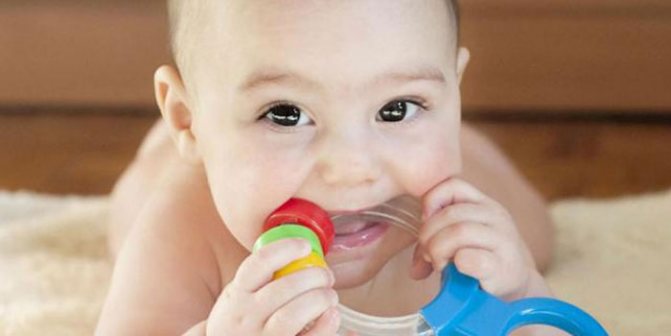
If diarrhea in a baby has all the signs of teething, then no special treatment is required. This is just a reaction to stress and irritation of the gums.
Parents should know what to do to help their child in this situation. Need to:
- Keep the room clean to avoid increased infection. At such a moment, the child chews everything he can reach. Headboards, furniture handles, chair arms should be wiped 3-4 times a day.
- The first victims of annoying itching in the gums are rattles, cubes, even soft animals. Toys are thoroughly washed and disinfected if necessary.
- To relieve itching, pediatricians advise purchasing a teether. Of course, you should also monitor its cleanliness. It is impossible to give hard crackers as a remedy for itching, since the crumbs can scratch the inflamed gums, and the baby can choke on them.
- Diarrhea and fever in a baby during teething lead to a large loss of fluid. To avoid dehydration of the body, it is necessary to often give the baby a solution of salt or glucose, weak tea, rosehip decoction, or fruit juice. If you have severe diarrhea, you can give your baby Regidron.
- Loose stools due to teeth are not a reason to give your child antibiotics. On the contrary, they can increase diarrhea, as they destroy the already damaged intestinal microflora. To restore it, you need to give the child Linex.
- Frequent urge may also cause irritation on the skin of the buttocks. For protection, it is best to use a cream with panthenol.
- If the temperature rises during this period, use Paracetamol or Ibuprofen in minimal doses.
- When diarrhea is accompanied by colic, which already indicates its other nature, you need to use gas remedies - for example, Espumisan or its analogues.
[adsp-pro-6]
Increased salivation, vomiting, greenish diarrhea, and mucus indicate an infection. This requires professional help.
Nutrition correction
If the child is breastfed, then when diarrhea appears, the mother should go on a diet that involves avoiding spicy, smoked and salty foods.
You should temporarily avoid new foods as complementary foods and stop giving your baby foods that have recently been introduced into the diet.
Until the diarrhea completely disappears, you should completely eliminate milk and juice from your diet. It is better to give preference to mashed potatoes and carrots, rice porridges, jelly, homemade rye bread crackers and low-fat vegetable soups.
Nutrition for diarrhea
Whether there can be diarrhea during teething, we figured it out. All that remains is to figure out how to help the baby without aggravating the condition.
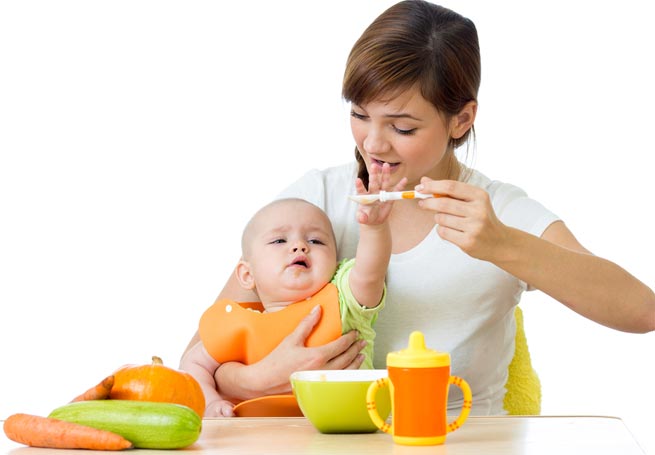
If a child has diarrhea, the first rule is a gentle diet. This applies not only to the children's menu, but also to the diet of a nursing mother. The following should be immediately excluded from the list of complementary feeding products:
- milk products;
- juices;
- fresh berries and fruits (except bananas);
- prunes;
- beet;
- any fatty food.
Until the teeth have erupted, the food should be gentle, crushed and served warm. To normalize stool without medications, it is recommended to include foods that have a binding effect in the diet. For infants aged 6 to 18 months, this is when teething can occur, the following dishes are suitable:
- dairy-free rice porridge;
- mashed potatoes;
- natural jelly;
- baked apples;
- bananas;
- drying.
Be sure to follow the rules for introducing complementary foods! And if the baby is only six months old, you don’t need to shove him with a portion of mashed potatoes. Choose products from the proposed list in accordance with the age category.
Treatment methods for the condition
It is necessary to influence the cessation of the entry of infectious agents into the child’s body (especially if it is an infant), so as not to aggravate the condition. To do this you need to adhere to the following rules:
- After defecation, wash the child with running water and discard wet wipes. Their composition may irritate the skin and mucous membranes and may not completely cleanse.
- During the period of diarrhea, avoid using new hygiene and cosmetic products, as they can provoke allergic reactions due to reduced local immunity.
- Try to thoroughly clean and wash all objects that a child can put in his mouth - toys, teethers, crib items.
- Carry out wet cleaning in the children's room more often.
- When walking, try to have less contact with others - with children with signs of ARVI. Immune defense is weakened and there is a high risk of getting sick.
We suggest you familiarize yourself with Who puts crowns on teeth, orthodontist
General recommendations for diarrhea during the dental period:
- Meals should be small, with a predominance of liquid (water, breast milk); if the baby refuses to eat, you should not insist and feed him. For older children, offer bananas, carrots, rice water, and potato dishes.
- Do not take medications, antibiotics or nitrofuran agents on your own. You should consult a specialist.
- Lightly stroking the tummy helps relieve spasms, rumbling, and pain from diarrhea.
- If there is a significant increase in temperature and to relieve pain, antipyretic drugs (ibuprofen, paracetamol) can be used. If you have a low-grade fever, these medications should not be given. They cause suppression of interferon production, which can provoke infectious processes.
- The water-drinking regime to eliminate and prevent dehydration should be organized as follows, depending on the age of the child: increase the number of breastfeeding, often offer to drink liquid in small sips (water, compote, tea, fruit juice). In case of significant dehydration, special solutions are used - Regidron, Gastrolit, Humana-electrolyte.
- Assistance in restoring intestinal microflora with the prescription of drugs that contain useful drugs from lactobacilli, bifidobacteria - Linex, Bifidumbacterin, Enterozermina, Lactobacterin, Bifiform.
- Home cooking folk remedies are used only after consultation with the pediatrician (use for newborns is prohibited), include decoctions, herbal teas: mint decoction, chamomile teas, hawthorn infusion, blueberry infusion, bird cherry infusion, decoction of barley grains, sage, infusion of St. John's wort, nettle leaves, blackberries.
Diarrhea during teething
A baby's first teeth are a long-awaited joy for parents. Their appearance is often accompanied by anxiety, fever, and digestive problems in the baby.
These phenomena are short-term in nature and do not affect children's health. However, even a few days of the baby’s illness bring anxiety to the young mother.
It is important for her to know how long diarrhea lasts during teething, and how to help the baby during this difficult period.
Teething symptoms
The first baby teeth appear at about 5 months of age. The process is gradual and lasts about two years. The release of each tooth is accompanied by a local decrease in immunity, which increases the risk of pathogenic microorganisms entering the body. This is why the emergence of another baby or molar tooth is so often accompanied by a physiological disorder of the stool.
In order to take the correct treatment measures, it is important for the mother to recognize that diarrhea in a baby is not related to serious infections. Other symptoms of teething will help with this:
- swelling and swelling of the gums;
- excessive salivation;
- the need to chew something hard (teether, toy, bagel);
- anxiety;
- elevated temperature (up to 38 ºС);
- vomit;
- constipation (occurs in bottle-fed babies);
- diarrhea.
Changes in stool, swollen gums and the baby’s desire to chew on everything that comes in its way are sure signs of teething.
Causes of diarrhea in babies during teething
Everything in a baby’s body is interconnected, and another proof of this is diarrhea in a healthy child when teeth come out. Why does it arise? Experts cite the following reasons:
- Increased salivation. It is not by chance that wise nature turns on this mechanism. Saliva washes the mucous membranes of the oral cavity, protecting against the penetration of opportunistic microflora. Once in the child's stomach, it accelerates peristalsis and provokes loose stools.
- Weakened immunity. The risk of an infant catching an intestinal infection during the teething period is quite high. In the summer, rotavirus is common, which is characterized by a slight increase in temperature, vomiting, and watery stools in the first days of the disease. In winter, a weakened child is susceptible to ARVI.
- Ingress of microorganisms and bacteria from the outside. The gums itch, hurt and bother the baby, so he puts everything that is nearby into his mouth. This increases the risk of pathogenic bacteria entering the gastrointestinal tract.
- Poor nutrition during teething. The enzymatic apparatus of the pancreas in a child may malfunction, which provokes intoxication and loose stools.
- Heredity, somatic diseases (gastritis, tonsillitis, pancreatitis). If the parents' teething was accompanied by discomfort, then the baby is more likely to experience it in a severe form.
Associated symptoms
Diarrhea without infection lasts up to three days (this is usually how long it takes for a tooth to emerge above the surface of the gum). The stool is usually yellow-brown, watery, without impurities or foul odor.
In this case, the number of bowel movements does not exceed 4 times a day.
If rotavirus or another infection occurs, diarrhea can last 4-6 days, which does not go away without leaving a trace on the baby’s body and requires consultation with a doctor.
Digestive upset in children may be accompanied by fever, frequent regurgitation, swelling, nasal congestion, and runny nose. Sometimes the color and consistency of stool changes, and a stench appears. During this period, it is important to closely monitor the baby to prevent dehydration and deterioration of health.
What does childhood diarrhea look like in this case?
Diarrhea during teething is not considered a pathology if it does not contain impurities of blood, mucus, or is green in color (a sign of an intestinal infection). Loose stools should not be accompanied by bloating, changes in peristalsis, or pain on palpation.
The mother can assess the situation on her own by placing her hand on the baby’s tummy, checking its softness, symptoms of gas formation (“gurgling”), and the baby’s reaction to touch. In babies under one year of age, diarrhea should not be profuse and frequent (the norm is up to 4-5 times a day). If it gets worse over time, it indicates a serious problem.
Prevention
Digestive upset during teething is easy to prevent. This will avoid dehydration, refusal to go for walks, and will keep the baby healthy. During the period when teeth are being cut, pediatricians recommend that parents:
- watch a video on this topic of personal hygiene, keep your hands clean, disinfect things around the child;
- a nursing mother should avoid introducing new foods into her diet;
- use teethers and pain-relieving gels;
- postpone the introduction of new complementary foods;
- do not insist when the baby refuses complementary feeding - it is better to offer him breast or the usual formula.
Simple measures will minimize the risk of digestive upset in a child during teething and will alleviate his condition if diarrhea cannot be avoided. Any dyspeptic disorder is a reason to show the child to the doctor. Only a specialist will determine the correct cause and prescribe therapy that will help you recover without complications.
Diarrhea during teething: causes and solutions
After the baby's colic ends, parents begin to worry about another problem. At about three or four months, every baby begins to cut teeth. In this case, the baby experiences discomfort and sometimes pain.
Babies often experience diarrhea when teething. Is this normal? You can find out the answer to this question from the presented article. It is also worth talking about why diarrhea occurs during teething.
Methods for eliminating the symptom will be described below.
Source: https://philosophytoday.ru/ponos-pri-prorezyvanii-klykov/
Can teething cause diarrhea?
During the dental process, various symptoms may occur; diarrhea is one of these manifestations. There is a connection between diarrhea syndrome during an erupting tooth in a child and passage through the musculoskeletal formations of the jaw. This is explained:
- When a tooth passes through the soft gum tissue, itching occurs. The child is teething, he tries to scratch with his fingers or chew the first thing that comes to hand. Many things contain pathogenic microbes that, when they enter the digestive system, cause indigestion.
- When introducing new complementary foods, which coincides with the period of dentition.
- The growth of the dental structure is stressful for the child’s body, and psychogenic diarrhea develops against this background.
How many days does diarrhea last during teething and what to do in this situation?
Diarrhea during teething in children baffles many mothers who have never encountered such a phenomenon.
How long does it last and do I need to do something to eliminate it? How to recognize if there is a connection with teeth? Let's try to find answers to these questions. Teething in children is accompanied by various, at first glance, completely unrelated signs. Among them, there are also disturbances in the functioning of the gastrointestinal tract, such as vomiting and diarrhea.
Sometimes parents often attribute any changes in the behavior and health of the child that arose during the teething period to them. Therefore, it is worth carefully monitoring changes in the child’s condition so that the symptoms that arise are not mistaken for a reaction to teething and do not miss a serious illness.
Why does loose stool occur?
The direct relationship between diarrhea and growing teeth is difficult to explain, but the experience of mothers and the observations of pediatricians have identified reasons that show whether there may be a relationship between these two phenomena.
- Saliva enters the gastrointestinal tract, and its increased amount helps to dilute the stool.
- Pathogenic microbes entering the stomach cause indigestion.
- Introduction of new foods that can cause diarrhea.
- Acceleration of metabolic processes in the body.
- Teeth growth is stressful for the body, which leads to diarrhea.
How many days does it last?
Normally, indigestion associated with teething does not occur for more than 48-72 hours. If the following symptoms occur, then you should not hope for self-cure, but visit a doctor to determine the true cause of diarrhea.
- frequent bowel movements – occurs 5 or more times a day;
- color changes - the appearance of a greenish tint or if the stool turns black is a direct indication for examination by a pediatrician;
- duration - the problem lasts for the baby for more than three days, while the intensity of diarrhea does not decrease, but on the contrary, the symptoms increase;
- inclusions - the appearance of foreign inclusions, as well as feces with blood are alarming signals;
- thin, watery diarrhea that causes painful urges.
If you notice the listed changes that do not go away for a long time, then they may indicate other diseases not related to teething.
Is diarrhea a symptom of teething in children or not?
There is no definite answer to this question, but many mothers note that there is still a relationship between the two symptoms: diarrhea occurs simultaneously with swollen gums and excessive salivation, and disappears after the tooth appears on the surface of the gum.
Doctors cannot always provide a scientific basis for the relationship between diarrhea and teething. A large amount of saliva entering the stomach and intestines may not always cause stool liquefaction.
However, the popular conclusion is that babies put any objects in their mouths that come into view, and there are many microbes on them. The entry of bacteria into the gastrointestinal tract leads to the development of diarrhea.
The main symptoms of teething in a child
There are no specifically established signs that appear in all children. One child goes through this period without any problems, while for another, each tooth is given with great pain.
This mainly applies to primary teeth, because permanent teeth rarely cause discomfort, with the exception of “sixes”, which is due to the size of the coronal part. There are symptoms that are commonly identified with teething:
- copious secretion of saliva is a sure sign that the baby’s first tooth will soon appear, because saliva protects against microorganisms, the entry of which into the oral cavity is increased due to the fact that the child drags into his mouth everything that comes along the way;
- swollen gums - the soft tissues of the gums increase in size, and the contours of cutting teeth are clearly visible through them. The gums hurt and itch, which is why children try to relieve discomfort by gnawing on various objects;
- change in behavior - children often become nervous and capricious, which is not surprising, because the tooth has to move along the bone and appear on the surface, which causes considerable pain;
- habit of gnawing - due to the fact that the gums are itchy, the child tries to bite hard objects, because mechanical pressure on the tissue eliminates pain;
- cold symptoms - fever, weakness and malaise may accompany teething. Active substances are produced in the growth zone, which facilitate tooth advancement and soften tissue. Sometimes local inflammation occurs in the oral cavity due to the addition of a secondary infection;
- disruption of the functioning of the intestines - the ingress of microorganisms, as well as an increased amount of saliva, lead to the occurrence of loose stools;
- runny nose - increased work of the glands contributes to the appearance of snot, which normally disappears after 2-3 days.
Against the background of a stressful reaction to teething, the child’s immune defense may be weakened, which makes it easy to catch a concomitant disease. Be attentive to your baby so that due to apparent changes in teething, you do not miss the disease.
How to treat diarrhea during teething?
If diarrhea is a symptom of teething, then the child does not need special treatment. When loose stools last more than three days, are frequent and interfere with the baby’s well-being, it is worth contacting a pediatrician so that he can diagnose the cause of the ailment and prescribe treatment.
- Keep the house clean - a teething baby puts all objects in his mouth. Wipe the sides of the bed and playpen, because children often chew on them during this period to relieve unpleasant itching in the gums;
- wash the toys - make sure that the teethers and rattles are clean before they enter the baby’s mouth;
- Review your diet - offer your baby more fluids, including breast milk or infant formula, to prevent dehydration. Eating bananas and carrots alleviates diarrhea, and rice water and potatoes help overcome loose stools;
- Medicines – do not give antibiotics if the cause of diarrhea is teething. To maintain microflora balance, it is allowed to take Linex. In case of profuse diarrhea, Regidron, which protects against dehydration, will not be amiss.
: Dr. Komarovsky about teething in children and accompanying symptoms.
Reviews from moms
Irina, 33 years old
I have three children, when the youngest one started teething, I was sure that I knew everything about it. But a surprise awaited me: along with streams of saliva and swollen gums, my son developed diarrhea. I could not understand the relationship and sinned that maybe my baby had eaten stale puree.
After I excluded vegetables for a while, the situation did not change. On a forum for mothers, I learned that diarrhea occurs “on the teeth” and what to do about it. I gave my son a lot of water and made sure everything he put in his mouth was clean.
Two days later, the diarrhea went away, and in my mouth I noticed the white edge of the first tooth.
Olga, 21 years old
My daughter suddenly developed diarrhea, which occurred 4-5 times a day. I couldn’t understand what was happening, because in addition to this, she became nervous, ate poorly, and often woke up at night. Without waiting for her condition to worsen, we went to the pediatrician. The doctor examined the baby and looked into her mouth.
After receiving test results that showed no abnormalities, he said that diarrhea was the body's response to growing teeth. To maintain fluid balance, she advised me to offer fluids more often, and also prescribed Regidron, which prevents dehydration.
After a couple of days, loose stools returned to normal, and the child became less capricious.
Svetlana, 25 years old
My daughter erupted her first teeth without any problems: there was no fever, no whims, no refusal to eat. When she cut her fangs at the age of one and a half, that’s when I remembered all the stories of the mothers in the sandbox about all the horrors of teething. My daughter was capricious, screamed a lot, didn’t want to eat, and couldn’t sleep alone at night.
The big surprise for me was the appearance of diarrhea. I thought that she had been poisoned by something, but she did not vomit, and her stomach did not hurt. My mother-in-law said that this happens when baby teeth grow, and advised me to give her rice water. That's what I did.
The next day, the frequency of stool decreased, and when the fang came out, the diarrhea disappeared.
Loading …
Dental reference book
Tooth structure
Source: https://infozuby.ru/ponos-pri-prorezyvanii-zubov.html
Nutrition rules during this period
Dental diarrhea in a child requires dietary adjustments. An exception is the situation if the baby eats only mother's milk or artificial formula. First of all, you should remove certain foods from your diet, these include:
- meat;
- vegetable and fruit juices;
- pears;
- peaches and apricots;
- plums
In addition, it is necessary to exclude vegetable oils and reduce the consumption of dairy products as much as possible.
When a child has diarrhea on his teeth, you should include in the menu such side dishes as mashed potatoes and boiled rice. You can bake apples as a dessert. A banana has fastening properties, which is easy to simply mash with a fork and replace an entire meal with it. It is useful to offer lean soups and rice porridges.
Special attention should be paid to drinking. It can be varied with drinks that also have an effect on the stool. In this case, strong tea and jelly will do. With them you can offer your baby dry bread or regular crackers. They not only stop diarrhea, but also massage the gums well. However, you need to carefully monitor your child so that he does not choke.
We suggest you read: How wisdom teeth grow in adults
Causes of vomiting in children
There are several categories of factors that influence this.
The first of them is that when teething, salivation is so significant that the baby simply does not have time to swallow the entire volume of saliva.
As a result, it runs down the chin, and parents do not have time to change bibs and other clothes in time. Next, drool naturally begins to flow, accumulating in the mouth, after which the baby swallows it and removes it from the body by vomiting (a child can vomit for quite a long time). The likely consequence may be diarrhea and increased temperature.
What can you give a child when vomiting and how to stop it?
Pain due to teething causes the baby to scream and cry, and therefore he swallows air. The air swallowed in a significant volume, together with vigorous movements (very often the child begins to arch in pain), will prop up the diaphragm. This provokes the fact that drool, along with breast milk, begins to erupt in a fountain. However, this reason least often affects teething, because this is more typical of an advanced stage, while parents are usually more attentive and take appropriate measures earlier.
If there is pain or poor health, the child may well refuse to eat food. In this case, many parents try to force feed the baby, as a result of which the body simply rejects the food. The following may also happen: high temperatures, colds and vomiting during teething accompany this process, and parents do not immediately understand that the child is simply sick. Due to changes occurring in the baby’s body, the immune system becomes worse, and pathogenic (negative) flora begins to invade it. It is strongly recommended that you also pay attention to the following:
- intoxication will be associated with characteristic symptoms, while vomiting during illnesses accompanied by high temperatures is a completely understandable reaction;
- Taking this into account, vomiting may well be perceived as the body’s self-cleansing of toxic components that are produced by pathogenic flora with an increase in their activity;
- in such a situation, the main thing is to prevent dehydration, because it can occur in a child within a matter of hours.
Signs of dehydration
When the amount of liquid a child drinks is not enough, alarming symptoms may occur:
- urine darkens;
- you rarely have to change a diaper;
- dry mouth, few tears;
- lethargy.
If signs of fluid loss continue, you should immediately consult a doctor for help. Dehydration is dangerous to the central nervous system and internal organs. Delay is fraught with complications in the functioning of the heart, kidneys, and the appearance of seizures.
Causes of indigestion
Official medicine does not consider diarrhea to be a mandatory symptom of teething. This fact has not been proven, but both ailments like to appear at the same time. Possible causes of loose stool in a baby:
- During this period, increased salivation occurs. The motor functions of the stomach and intestines are reflexively enhanced. The volume of incoming food remains the same or decreases if the baby is worried and loses appetite. Less feces are produced. The body has only water left to excrete. Loose stools last no more than 5 times a day.
- Growing teeth is a dangerous age. The child chews on all sorts of objects that fall into his hands. Contamination from dangerous bacteria trapped inside will cause diarrhea.
- The appearance of teeth coincides with the introduction of complementary foods - new foods are to blame.
- Emotional shock experienced by the child. Severe pain may cause stomach upset;
- When teeth “climb”, the gums look like an inflamed wound. The body's defenses strive to prevent inflammation. The immune system weakens.
Signs of an acute condition when a child is vomiting
What deserves special attention is what the symptoms of more acute conditions are if a child is vomiting. Experts pay attention to the likelihood of developing dry skin and exhaustion - in this case, a weakened child can no longer cry loudly enough, he only moans quietly. In addition, drooling, always perceived as a characteristic symptom of teething, suddenly stops.
What can and cannot be eaten if you have a diseased liver?
Further, a baby with teething, if his health worsens, may encounter the fact that the urine turns out to be dark. If it is released, it is only in insignificant quantities. If any catarrhal phenomena occur (for example, a runny nose), then in this case it will be possible to draw conclusions about the occurrence of ARVI. When diarrhea occurs, experts most often suspect rotavirus, a symptom of which can be other conditions. Considering all this, it is very important for parents to know everything about how exactly they can cope with vomiting in a child.

